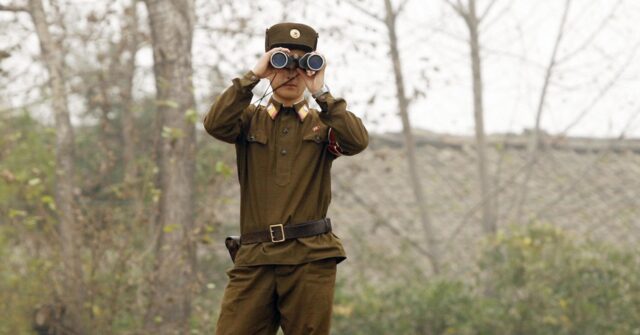In a tense escalation of geopolitical tensions, a senior Ukrainian official confirmed that Ukrainian forces fired upon North Korean soldiers stationed in the Kursk region of Russia. This incident represents the first reported direct military engagement between Ukraine and North Korea amid ongoing concerns about North Korea’s increasing involvement in the conflict surrounding Ukraine. For weeks, Western officials have warned of reports suggesting that thousands of North Korean troops were being mobilized into Europe to support Russian military efforts in Ukraine, possibly stemming from a mutual defense agreement signed by North Korean dictator Kim Jong-un and Russian President Vladimir Putin. In stark contrast to these claims, the North Korean regime has consistently denied any direct involvement in Ukraine, labeling such reports as Western disinformation.
The exchange of fire occurred shortly after North Korea conducted a significant test of its newest intercontinental ballistic missile (ICBM), the “Hwasong-19,” raising alarms particularly in South Korea and Japan, where officials suspect that North Korea may also be preparing for its first nuclear test since 2017. Ukrainian President Volodymyr Zelensky has publicly decried the lack of response from the European Union and the Pentagon regarding the potential threat posed by North Korea’s military ambitions. He fears that inaction could embolden Russia and its allies to escalate violence. Despite the reports of North Korean troops coming under fire, Zelensky surprisingly did not include any mention of North Korea in his regular updates, underscoring the complexities and contradictions in the ongoing communication about the conflict.
Zelensky expressed his frustration over the lack of military support from Western allies, particularly regarding the provision of long-range capabilities that Ukraine desperately needs. He labeled the current international reaction as negligible, asserting that instead of preemptively addressing the looming threat, allies are merely waiting for North Korea to take action against Ukraine. While North Korean troops have thus far not engaged in combat, Zelensky warned that their deployment would be imminent, and he anticipated significant casualties among them as Russia seeks to alleviate its own troop shortages through this military collaboration. The Ukrainian president underscored the gravity of the situation by emphasizing that insights gained from combat in Ukraine could ultimately enhance North Korea’s military competence in future conflicts, particularly against South Korea.
The Pentagon’s projections included anticipations that North Korea could send as many as 10,000 troops to Russia within weeks, and NATO has confirmed that some are already present in the region. Meanwhile, the North Korean government has remained tight-lipped regarding any military operations regarding Ukraine. Rather, state-controlled media have focused on affirming the strengthening ties between Pyongyang and Moscow. A recent visit by North Korean Foreign Minister Choe Son Hui to Russia resulted in statements that highlighted a commitment to expanding bilateral relations and a shared perspective on global tensions primarily attributed to U.S. provocations.
In a statement following Choe’s discussions with his Russian counterpart, the North Korean Foreign Ministry framed their relationship as evolving toward a “new strategic level,” indicating a mutual understanding of international challenges faced by both nations. They highlighted their shared grievances against perceived provocations from the U.S. and its allies, detailing a belief that such actions have been the root cause of escalating tensions not just in the Korean peninsula, but globally. This rhetoric reinforces the narrative of both North Korea and Russia positioning themselves as counterweights to Western influence, further complicating the dynamics within the ongoing crises in Ukraine and the Korean peninsula.
As North Korea continues its military advancements, particularly with its ICBM tests and readiness to support Russian military objectives, the specter of international conflict looms larger. Zelensky’s warnings about the implications of North Korean support for Russian forces illuminate the broader implications for regional stability in East Asia, especially regarding South Korea. The interconnected nature of these geopolitical tensions—where the conflict in Ukraine can have far-reaching consequences for stability in Asia—underscores the urgent need for coordinated international responses to prevent both regions from spiraling into further chaos marked by military confrontations and escalation. The situation calls for vigilance from global powers wary of the intertwined fates of these long-standing conflicts, emphasizing the importance of strategic alliances and proactive measures in the face of emerging threats.

